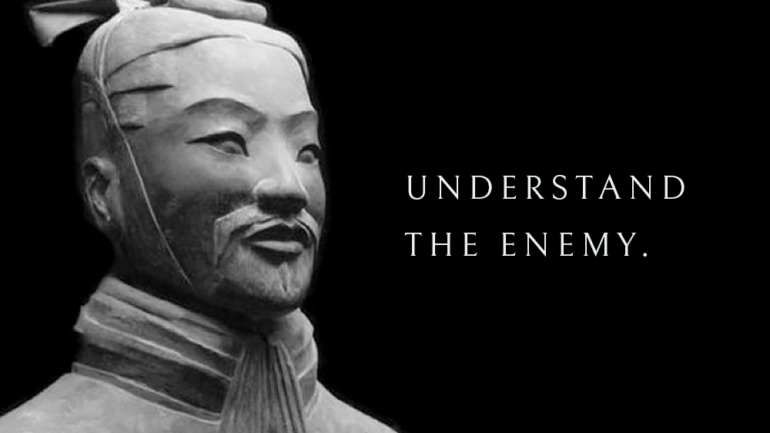Although Sun Tzu’s statement seemingly refers to actual war, you can apply the same concept to your emotions.
Overcome fear and worry by understanding it, that is, you can’t fix a problem until you can identify the problem. You can’t defeat an enemy until you know who the enemy is. Likewise, you can’t fix an emotional or thinking problem until you clearly identify what the problem is. And label the problem. A hypochondriac can’t fix their Parkinson’s disorder when their Parkinson’s is a figment of their imagination. They will be like the old joke:
A man comes upon another man looking around on the ground under a street light during the night. He asks him what he’s looking for and the other man tells him he’s looking for his car keys. When asked where he last saw them, he says further down the street. So when asked why he’s looking for them here, the man replies “the light is better here”.
That’s a hypochondriac getting another useless medical test. That’s a person with OCD repeating useless acts to make a disturbing thought go away. That’s any anxious person repeatedly thinking of “what if scenarios” as to negative things that might happen in the future because somehow doing that will make them not happen???
IT’S ALL A WASTE OF TIME.
You need to stop looking where the light is better and look where the keys may actually be found. That only happens with accurate “Step 1” work – labeling the REAL issue and shining a light on the authentic problem. For the hypochondriac that is recognizing they imagine dread medical problems that never materialize – they need to accept and label themselves as – wait for it – a big ole’ hypochondriac. The OCD person needs to tell themselves that once again they are being full-on OCD person. The anxious worrier needs to label themselves as a habitual anxious worrier with a noggin full of silly fears about the future that never really happen. That provides them a spotlight to now be able to properly identify where the keys are – where the problem really is – to begin fixing the real problem.
Here are some TIPS THAT CAN HELP YOU overcoME fear and worry:
Use humor
“There’s the greatest truth in the slightest jest” some brilliant person once said. Use a label that pokes fun at the problem because that helps “devalue” it (step 2) by clearly labeling it as silly.

Say it out loud
Saying the label out loud gives it way more power and makes it that much more effective: “I’m a chronic worrier”.
Say it out loud to other people too
If there’s somebody you feel comfortable revealing it to. Chances are, they already know it and will congratulate you for finally saying it.
Anyone can overcome fear and worry, but just like any of emotional work, the road towards a successful outcome begins with you.
